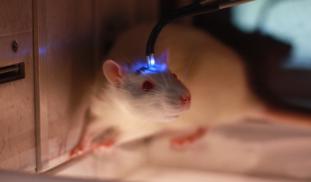Please wait...
About This Project
Life frequently tempts us with alluring options that turn out to be bad decisions. If risky decision-making becomes the norm, it can rapidly lead to an unhealthy lifestyle and sometimes even addiction. We are beginning to understand what happens in the brain when we make risky decisions. But what changes in the brain when we refrain? By understanding how the brain prevents risky-decision making, and possibly addiction, we can prevent those decisions from happening in the first place.
More Lab Notes From This Project

Browse Other Projects on Experiment
Related Projects
Brain dynamics in braille reading: Letters to language
Blind and low-vision readers read and write text using braille, a tactile system of raised dots. In this...
Mapping midlife minds: A study of women’s cognitive and mental health
Many women experience brain fog, memory lapses, anxiety, and mood swings during peri/menopause – yet we...
Developing a new evidence-based treatment for moderate to severe dementia
The World Health Organization calls for an increase in psychosocial interventions for dementia. While the...


